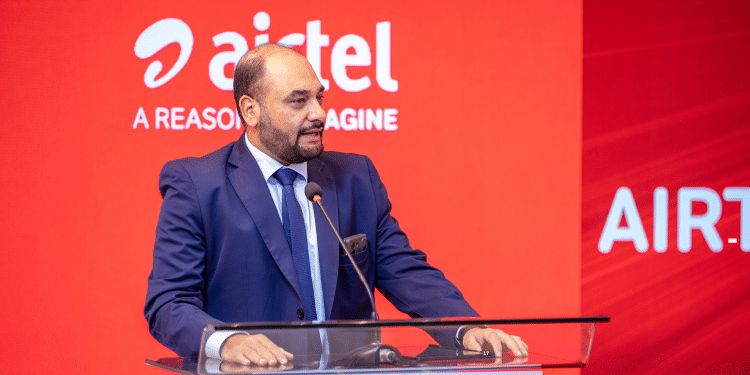The Tax Laws (Amendment) Bill 2024 is among four bills which propose tax changes introduced by the National Treasury.
The amendment bills 2024 are set to improve tax collections by sealing tax loopholes, increasing tax relief limits for pension contributions, and providing tax relief for the Social Health Insurance Fund (SHIF) and housing levy deductions.
In addition, Treasury Cabinet Secretary John Mbadi has been on record explaining that the amendments aim to introduce measures to control public expenditure and introduce e-procurement to enhance transparency.
The government, through the Tax Laws Amendment Bill sponsored by National Assembly majority leader Kimani Ichung’wah, seeks to reintroduce some of the provisions that were contained in the ill-fated Finance Bill 2024.
Among the proposals of the Tax Laws Amendment Bill is harmonization with the Social Health Insurance Act which will ensure insurance relief for Kenyan employees.
The Bill proposes to amend section 31 of the Income Tax Act to harmonize it with the enactment of the Social Health Insurance Act, 2023 by deleting any reference to the National Hospital Insurance Fund (NHIF).

Tax Laws (amendment) Bill, 2024 proposals
In addition, the bill proposes to repeal the relief on contributions made on health policy including the NHIF.
Also Read: CS Mbadi Clarifies Proposed Taxation Targeting Social Media in Kenya
The relief is currently set at 15% of the amount of premiums paid but subject to a limit of Ksh60,000.
Explainer: This amendment seeks to delete the relief that was previously available on the contributions made to NHIF.
It had been assumed that the same would extend to SHIF, but the KRA clarified by public notice, affirming that the relief would not apply to contributions to the new fund.
However, the Tax Laws (amendment) Bill, 2024 proposes to fully allow the same as deductible expense/contribution for tax purposes.
It will reduce the amount chargeable to Pay as You Earn (PAYE) for employees who have recently borne the weight of new taxes.
Repeal of Affordable housing relief
The Bill also proposes to repeal the Affordable Housing Relief in view of the same being made an allowable deduction in section 15.
It proposes to repeal the affordable housing relief applicable to individuals saving for the purchase of a house under an approved affordable housing scheme.
Currently, the relief is currently stands at 15% of the employee’s contribution capped at Ksh108,000 per year.
It is imperative to note that this relief is different from the relief available for deductions pursuant to the Affordable Housing Levy Act.
Explainer: This is a clean-up of the relief that is currently available to only persons making contributions towards affordable housing scheme as the Tax Laws (amendment) Bill, 2024 now proposes to fully allow the contributions to affordable housing scheme for tax purposes.

Income which is exempt from tax
The Bill if enacted will amend the First Schedule of the Income Tax to exempt pension payments including gratuity and other payments from a registered pension fund, registered provident fund, public pension scheme or National Social Security Fund (NSSF) from income tax and further remove the exemption of the income of the National Housing Development Fund.
Also Read: 5 Key Points for Corporate Taxpayers to Keep in Mind as KRA Intensifies Crackdown
The exemption from tax is intended to also apply to withdrawals from the funds prior to attaining retirement age due to ill health or after attaining twenty years from the date of registration as a member of the fund.
Explainer: The Bill intends to exempt withdrawals from pension payments prior to attaining mandatory retirement age due to ill-health after attaining 21 years from the date of registration as a member of the fund.
Prior to this Bill, persons who retired before the mandatory retirement age of 65years had their pension taxed.
This Bill allows those who are retiring due to ill-health or on attainment of 21 years since registration as a member of the fund to be exempted from paying tax.
This will further encourage people to retire early and create opportunities for the youth while giving retirees a higher disposable income.
On Individual Retirement Fund, the Bill proposes to delete the statement “and registered individual retirement fund means an individual retirement fund where the trust deed for such a fund has been registered with the Commissioner” from the original definition of an “individual retirement fund”.
Individual Retirement Fund and Individual Pension Fund
The proposed deletion in the definition of an “individual retirement fund” shall be “a fund held in trust by a qualified institution for a resident individual for the purpose of receiving and investing funds in qualifying assets in order to provide pension benefits for such individual or the surviving dependents of such an individual subject to the Income Tax (Retirement Benefit) Rules.”
Explainer: This is a welcome proposal as the proposed deletion shall restrict the Commissioner’s authority in rendering an independent definition as to what pertains to an individual retirement fund.
This move shall bind the Commissioner to the registration of a trust deed with the Retirement Benefits Authority (“RBA”) and not grant the Commissioner the power to subsequently define the same.
The cascading implication of the proposed deletion is to create clarity for the retirement funds to abide by the RBA regulations and reduce the need to seek additional confirmation, and adherence from the Commissioner of their dispensation of incomes to the beneficiaries of the trusts under Section 5 of the Income Tax Act.
On Individual Pension Fund, the Tax Laws (Amendment) Bill proposes to delete the statement “and registered pension fund means one which has been registered with the Commissioner in such a manner as may be prescribed”. Pension funds are registered with the RBA.
Follow our WhatsApp Channel and join our WhatsApp Group for real-time news updates.








































































